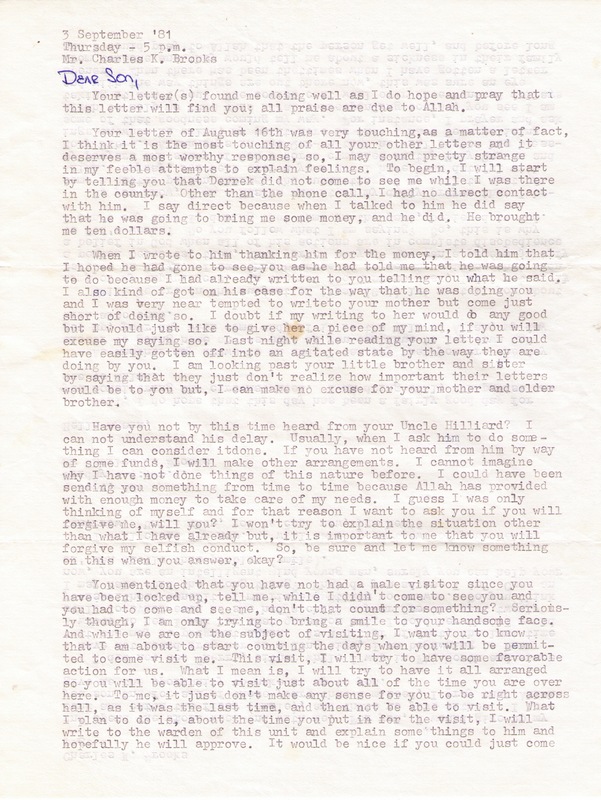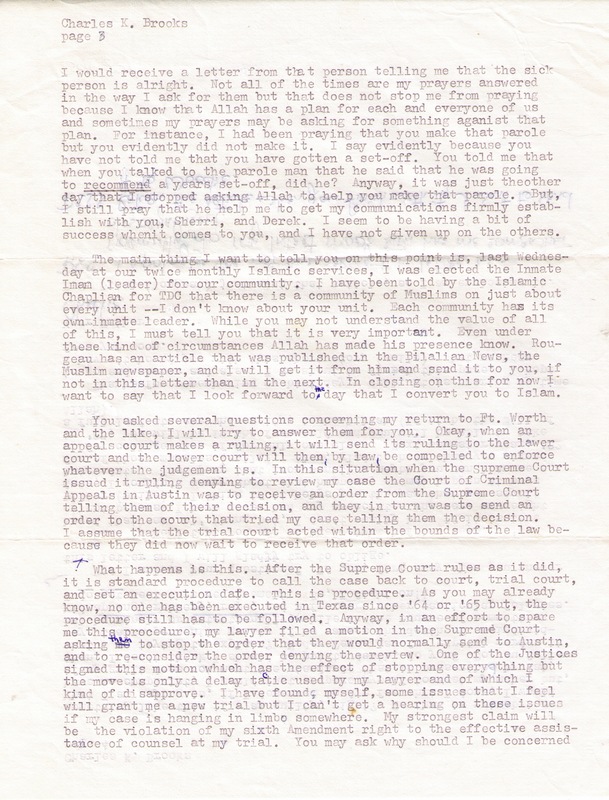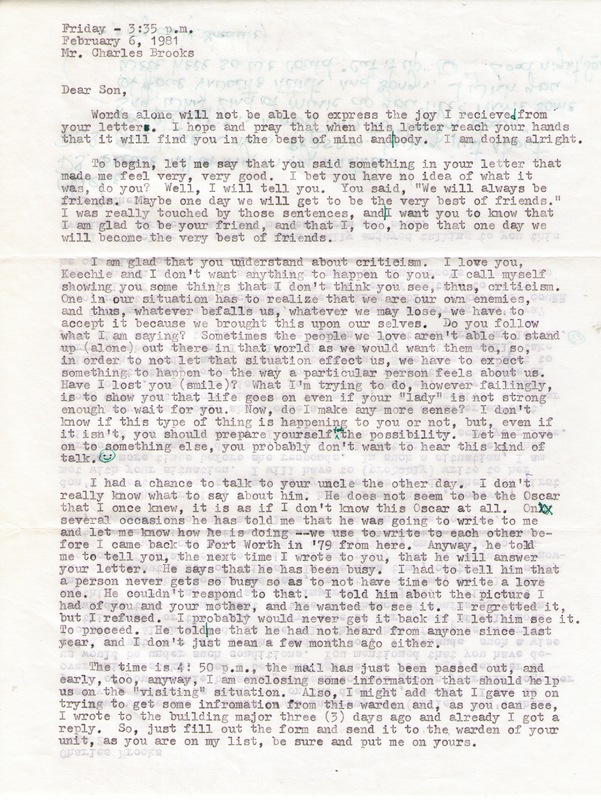The Right to Religion and the Case of Charlie Brooks Jr.
"Everyone has the right to freedom of thought, conscience and religion; this right includes freedom to change his religion or belief, and freedom, either alone or in community with others and in public or private, to manifest his religion or belief in teaching, practice, worship and observance." Article 18, Universal Declaration of Human Rights
Charlie Brooks Jr. was on death row for kidnapping and murder and yet he still found security in his life. This security was through his religion. While Charlie was in jail he converted to Islam. He states how it is his daily mission to become a better person and he does this through prayer. However, this was not always the case. He writes in a letter to his son Keith “In the not too distant past, I did not really believe in Allah.” Charlie’s actions in the past went against God’s word. While in prison he started to see the wrongs of his past and started studying the Nation of Islam. A few years before his execution Charlie was so devoted to the Muslim religion, he prayed everyday and was even the Iman of his unit in prison. He was the highest-ranking Muslim in the entire prison system.
There were many injustices throughout Charlie Brooks Jr.’s life in prison and execution however; his relationship with the Islam religion was not one of them. Article 18 of the Universal Doctrine of Human Rights explicitly states, “Everyone has the freedom to change his religion or belief.” Although Charlie was in jail, he expressed his right to convert to Islam. The jail had an entire Islamic community and people worshipping Allah were able to pray and have monthly services. As stated before Charlie was even able to become a leader for his religion. He even changed his name from Charlie Brooks Jr. to Sharif Ahmad Abdul-Rahim. His right to participate and convert to the Islamic religion was not violated while he was in prison.
While in prison, Charlie or Sharif also exercised his right to try to teach the religion of Islam to his sons through letters and visitations. He writes to Keith in another letter to “continue to study the word of Allah because it is through study that one acquires knowledge, then one is able to put that knowledge into action.” Charlie wants his children Keith and Derrek to follow the Nation of Islam like he did. While in jail Charlie believed that Allah would save him, that if he continued to pray he would get out of jail. In an oral history Keith recalls how his father shared the words “we ‘alaykum as-salaam” with him. Translated this means “Peace be unto you and unto you be peace.” Keith and Charlie used to use this line in their letters to each other. Charlie also encouraged Derrek to study the Nation of Islam. Derrek also shares in his oral history how his father encouraged him to listen to Muslim teachings. Although, their father was a devoted Muslim neither of his children converted. Charlie was extremely respectful of Keith’s decision to follow the Christian faith instead of Islam, here Charlie respected the right of his child to worship any religion he wanted following Article 18 in the UDHR.
Without religion, Charlie would have been facing even more torment while in jail. His religion gave him security and peace. In the oral history of Keith Brooks, he was asked if his father’s conversion to Islam changed him and if he could see that change. Keith responded saying “I think for sure. I think that the Muslim principles of peacefulness definitely was permeated his life. He really was a very peaceful and generous spirited person, and I do attribute that to organized religion.” Article 18 of the UDHR is extremely important. Religion is more than just a practice but it can be a way of life for people. Charlie Brooks Jr. is a perfect example of how religion can save people. Although Charlie was still executed his last words was a prayer to Allah. He found comfort in his religion and something to believe in. The right to religion is a right that needs to be protected.
Derrek's Oral History: https://tinyurl.com/mkh4dob
Keith's Oral History: https://tinyurl.com/n7s5r8d
By Kelly Komsa



